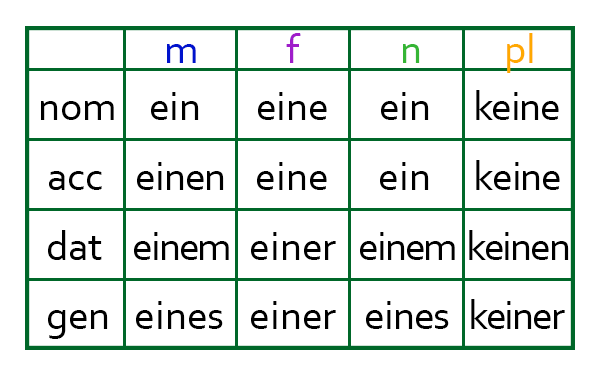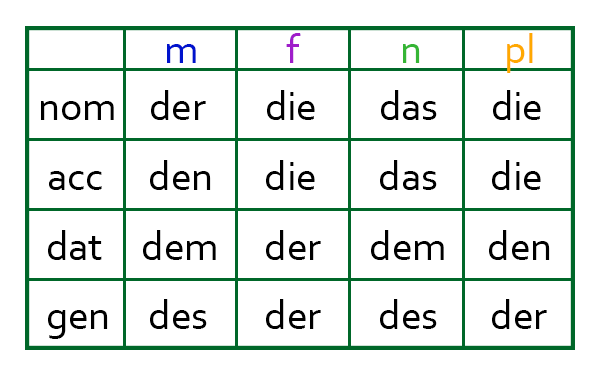The Genitive case is the case used to demonstrate possession, or the idea ‘of’ as we use it in English in cases such as ‘What is the meaning of life‘ or ‘I don’t know the size of his feet‘. If you speak like the characters in Monty Python and the Holy Grail, you also know what I’m talking about with regards to possession: ‘Where is the sword of my father? Sire, ’tis next to the much cooler sabre of the king.’
The genitive changes the definite and indefinite articles like so:
But the genitive is extra fun, because it seasons some nouns with a little extra sass, namely neuter and masculine nouns. In the genitive, you also add an -s to the end of the noun itself (-es if the noun is only one syllable, to make it easier to pronounce).
der Vater – im Namen des Vaters
das Haus – die Tür des Hauses
There are also certain prepositions which put the noun in the genitive case; most of them are prepositions which in English we use with ‘of’, so it’s quite easy to remember them:
außerhalb – outside of
innerhalb – inside of
statt – instead of
trotz – in spite of
wegen – because of
während – during (ok, some of them are just troublemakers…)
Stay tuned for a full lesson on the genitive case!

